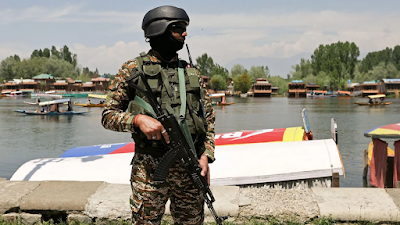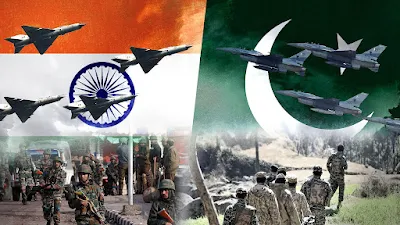India Strikes Back: What We Know About the Cross-Border Attack on Pakistan and PoK
India has launched a series of precision strikes across the border in Pakistan and Pakistan-administered Kashmir (PoK), marking a significant escalation just two weeks after a deadly attack on tourists in Indian-administered Kashmir. Dubbed "Operation Sindoor", the Indian Defence Ministry says the mission aimed to hold those responsible for the April 22 militant attack in Pahalgam accountable — an assault that claimed 26 lives, including 25 Indian nationals and one Nepali tourist.
India’s Objective: Targeting Terror Infrastructure
According to India’s defence ministry, nine sites were targeted — all described as "terrorist infrastructure" used for planning and directing attacks. The ministry emphasized that no Pakistani military bases were hit, describing the operation as "focused, measured, and non-escalatory."
Pakistan’s Response and Counterclaims
Pakistan’s reaction was swift and strong. Prime Minister Shehbaz Sharif condemned the operation, calling it a "heinous act of aggression" and warning that it "will not go unpunished." Pakistan’s military reported that Indian airstrikes hit areas in Muzaffarabad and Kotli (PoK) and Bahawalpur in Punjab, claiming civilian areas were struck.
Lt Gen Ahmed Sharif Chaudhry, the military’s spokesperson, claimed at least 26 people were killed and 46 injured in the strikes. In retaliation, Pakistan says it shot down five Indian aircraft and a drone—a claim that India has not officially confirmed. Meanwhile, Indian authorities reported that at least 10 civilians were killed due to Pakistani shelling on its side of the Line of Control (LoC).
The Pahalgam Attack: What Triggered the Strikes?
The catalyst for the Indian strikes was the April 22 terrorist attack in Pahalgam, a scenic tourist destination in Kashmir. Survivors of the attack reported that militants appeared to target Hindu men. It was the deadliest civilian attack in the region in 20 years and the first major assault since India revoked Kashmir’s special status in 2019 (Article 370).
Indian Prime Minister Narendra Modi vowed justice, promising that those responsible would be "punished beyond their imagination." Although no specific group has been officially named, Indian police alleged that two of the attackers were Pakistani nationals. Pakistan, however, has denied any connection to the incident.
Rising Tensions and Diplomatic Fallout
In the two weeks following the Pahalgam attack, tensions between the two nuclear-armed nations escalated rapidly. Both sides expelled diplomats, suspended visa services, and even closed some border crossings. Many observers believed a retaliatory strike was imminent, much like India's 2019 airstrikes on Balakot following the Pulwama bombing.
Kashmir: A Long-Standing Flashpoint
The Kashmir region has been a constant source of conflict between India and Pakistan since their independence in 1947. Both countries claim it in full but control it in parts. The region has seen three wars and countless skirmishes, especially along the LoC. Militant attacks have further strained the fragile peace over the decades.
Major incidents like the 2016 Uri attack and the 2019 Pulwama bombing have previously led to Indian military responses across the border. In both cases, tensions rose dangerously close to full-scale conflict, though international pressure helped contain them.
Global Reaction: Calls for Restraint
As expected, the global community is urging calm. UN Secretary-General Antonio Guterres called for "maximum restraint." The European Union, Bangladesh, and other nations echoed this sentiment.
UK Prime Minister Keir Starmer emphasized the importance of "dialogue and de-escalation," while US President Donald Trump expressed hope that the conflict would "end very quickly." US Secretary of State Marco Rubio stated that Washington is closely monitoring the situation.
What’s Next?
With tensions at a boiling point, both nations are under intense pressure from the international community to avoid further escalation. Whether these recent strikes spark more violence or lead to diplomatic negotiations remains to be seen.
As of now, the region — and the world — watches with bated breath.







.jpg)











